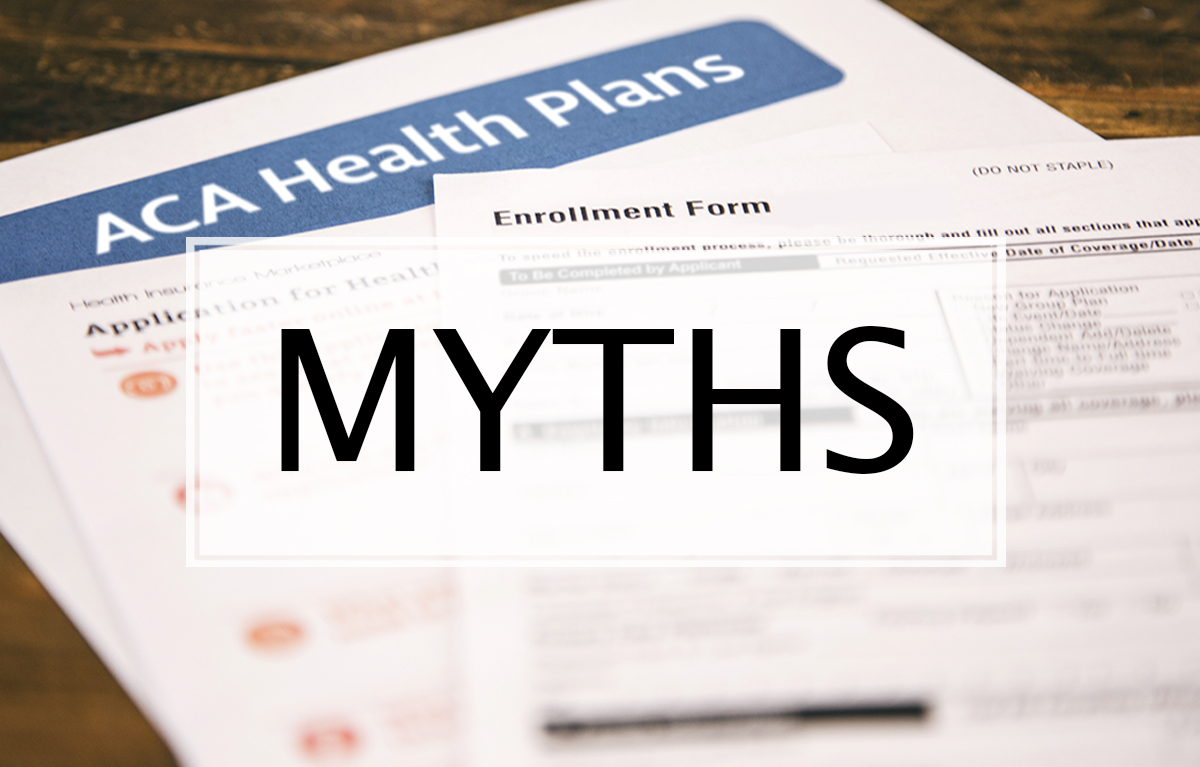Starting out as an insurance agent in the Medicare industry can seem daunting. There are many ins and outs of selling Medicare and quite a list of things you need to decide and do.
We touch on the hot topic areas for those wondering how to get into Medicare sales. You’re getting the full scoop from contracting to closing sales and everything in between.
Consider Joining a Field Marketing Organization
An FMO can be thought of as an agent’s support system. Most offer their partnered agents back-office support and tools and resources to help make running their business easier. It can be a misconception that only agents just starting in the industry will benefit from an FMO partnership, but both new and seasoned agents can reap rewards from an FMO.
Now, not all FMOs are alike and the services and benefits offered by one may not be offered by others. So, keep in mind when looking for an FMO what you really want to get out of the partnership. If you want to gain contract assistance, marketing dollars, educational industry info, or sales technology, then a new-age, industry-leading FMO is for you as opposed to a traditional FMO offering more surface-level partnerships. Also know that you want to look for an FMO that invests 75 percent of its resources into providing their agents with sales tools and services and 25 percent into recruiting new agents.
Questions are common when making important business decisions like this, and it’s likely other agents are raising the same ones. Doing some research and checking out frequently asked questions about working with an FMO before making any decision is always a good idea!
For even more info on FMOs and the benefits joining one can bring, download a free copy of How Insurance FMOs Work!

Complete Medicare Insurance Agent Training
As you know, Medicare is a federal program, which means Medicare Advantage (MA) plans are offered by private insurers and administered by the government. To keep everything on the up and up, there are rules for selling these plans, resulting in required certifications, such as America’s Health Insurance Plans (AHIP) training or NABIP Medicare and compliace certification.
Although it may seem like another hoop to jump through, this AHIP training is in place to benefit you. It is imperative to understand the do’s and don’ts of selling Medicare and if you don’t, you could find yourself in some serious hot water. So, completing AHIP or NABIP every year will ensure that you are on top of your game and prepared to service your leads and clients at the very best of your ability.
For more info on selling Medicare Advantage plans, download our ebook, The Complete Guide on How to Sell Medicare Advantage Plans!

Create a Well-Rounded Medicare Portfolio
It’s essential that you offer a wide range of Medicare products, from both regional and national carriers, to ensure you’re prepared to meet the needs of a variety of clients. One plan does not fit all and losing sales because your portfolio is missing a type of coverage option will hurt your wallet and your business.
Which Medicare Products Should I Choose?
A good idea of what a diverse portfolio can look like, depending on your region, of course, features:
- At least two Medicare Advantage (MA) plans and Medicare Supplements
- A minimum of one stand-alone prescription drug plan (PDP)
- At least one hospital indemnity plan (especially if selling MA plans)
- At least one dental, vision and hearing plan (especially if selling Medicare Supplements)
How Do I Choose the Right Medicare Products?
This is an instance when having a partnership with an FMO can be really beneficial. Your FMO can assist you in your product selection by offering insight and resources to make the feat a little easier for you. At Ritter, our Sales team is available to answer product questions and provide insight on what could be a good addition to your selling options.
We also offer state and region-specific Smart Sheets that outline a glimpse of competitive carriers in your area along with details about their selling potential. These Smart Sheets are extremely helpful resources because, as we all know, there are tons of carriers and plans to choose from. We boil it down for you and remove the stress of gathering that info.
Complete Medicare Contracts and Carrier Certifications
Once you have decided which types of Medicare plans and products you want in your portfolio, you will need to contract with the carriers that offer them and most likely complete their specific certification trainings in order to sell their plans. Another advantage of partnering with an FMO is receiving their contracting support and access to helpful certification info!
Medicare Contracting with Preferred Carriers
Most FMOs offer contracting assistance and resources to help you through the process and make it a little easier. For example, at Ritter, we offer Contract Now* to simplify the process with the use of prefilled info capabilities and batch completion.
Our licensing representatives will work with you to ensure your contract paperwork is complete the first time you submit it and void of any missing information. Then, we take care of getting your completed contract to the carrier, so processing is as fast as possible.
In addition to assisting with completing contracts, Ritter also helps agents get appointed, processes hierarchy and commission level changes, and answers all your general contracting questions. You can register with Ritter for free and take advantage of our contracting assistance!
*Newly registered agents must speak with their sales specialist to unlock Contract Now.
Medicare Product Certification
Once your contract has been completed and approved by a carrier, you’re not ready to start selling their Medicare plans just yet. The next step is to certify to be deemed “ready-to-sell” their Medicare Advantage plans, prescription drug plans, and select Medicare Supplements. Certification must then be completed annually. Carriers release their Medicare Advantage product and compliance certifications for the upcoming plan year late June through September of the current plan year.
To aid you in the process, your FMO may offer a resource with carrier information that includes certification specifics. In Ritter’s Certification Center, for example, you’ll find MA and Part D certification info for all of our 120-plus preferred carriers. We also cover helpful info like if certifying for 2026 will allow you to sell 2025 products and who you can contact at a carrier to confirm that you’re certified.
Secure Medicare Leads and Clients
Once you are “ready-to-sell” some Medicare plans, you need people to sell them to. Finding new leads can be tough, but things like following up and creating a website can do the trick. Also, FMOs can make it a bit easier, as they can offer lead and marketing programs, prospecting lists, and other lead opportunities!
FMO Lead and Marketing Programs
Co-op or lead opportunities are incentives some FMOs may offer to agents. Ritter, specifically, offers both! You can get details on our marketing programs and incentives here.
With Ritter co-op, we split costs up to 50 percent with qualifying agents! This benefit allows you to stay in budget while putting out great marketing materials to generate leads.
Follow Up to Keep Medicare Leads
In any business, following up with consumers is a good practice because it shows that you care. In the insurance world, following up is, not only a good business practice, but also, a way to stay on prospects’ radar, and hopefully, snag some referrals.
Following up after an initial meeting is a good idea, because we all know life gets busy and things get pushed aside. Your phone call or email is a friendly reminder that you are available to help them whenever they are ready.
Another great time to follow-up is after the close of a sale. You can make sure the client received all the materials they should have, for example their Medicare plan card or coupon booklet and, also, ask if they have any questions regarding their new plan and benefits.
Chances are your prospects and clients have friends and family that are ready to age into Medicare. By following up you’re showing that you’re a dedicated insurance agent. This will make your clients and prospects more inclined to trust you with the needs of their friends and loved ones.
Establish a Website to Create Medicare Leads
Websites can serve multiple functions and enable you to reach a wider range of consumers. Having an online presence enables consumers to find you, and become a lead! And if you don’t have a website, they could very well find another agent’s site and you’ll miss out. And the best part is, this can happen at any time because your website is available 24/7. So, your website can do the work for you while you’re getting other things accomplished.
Discover our top recommendations for marketing yourself, keeping in touch with clients, and staying organized in The Ultimate Agent Resource List!
Use Efficient Medicare Sales Tools
Having easy-to-use and reliable sales tools at your disposal is a must. For quoting, enrollment, and client management, you want technology you can trust and use consistently to take Medicare sales from start to finish. FMO partnerships come into play again for this need since many offer their own tools and tech for their agents to use. Of course, Ritter is no exception! We have resources exclusively available to our partnered agents. You can gain free access to them by completing a free registration with Ritter.
MedicareCENTER
Integrity’s comprehensive agent dashboard aligns the sales process into one fluid operation with one universal login. This is the main platform agents use and, through creating an account, gain access to countless additional sales resources and tools.
With MedicareCENTER you can experience:
- At-a-glance client tracking and simplified client management
- Compliant call recording and storing for both inbound and outbound calls
- Quote and side-by-side compare MA and Part D plans
- Autofill e-Apps with saved client info
- Schedule lead deliveries right to your profile
- Automated messaging capabilities through Client Connect integration
Learn more about MedicareCENTER here
PlanEnroll
PlanEnroll is a consumer-facing platform that has many different functions and perks for your business.
Your PlanEnroll Personal Agent Website allows you to share your own PlanEnroll page with consumers, who can then:
- Create a profile on PlanEnroll through Client Sync (which creates a contact record in your MedicareCENTER CRM)
- Access a library of resources
- Receive personalized nurture marketing emails based on on-site actions
- Review plan quotes
- Complete an enrollment application online
PlanEnroll’s Client Sync feature is extremely helpful for keeping track of each client’s plan and health info. Your clients are empowered to record and update their own data such as providers, pharmacies, and prescription drugs. All data entered via Client Sync automatically populates in MedicareCENTER for you to see. This ensures up-to-date preferences and better personalized guidance from you!
Encourage your clients to share and update their preferences in PlanEnroll seamlessly with Client Sync! Share this guide to encourage your clients to sync their PlanEnroll profile for the best experience.
You can start using PlanEnroll by completing a simple sign up for MedicareCENTER. This sign up unlocks all of Integrity’s suite of sales technology solutions.
LeadCENTER
Integrity’s LeadCENTER offers compliant and high-quality call and data leads. Agents can shop for leads that are available now, set up automated orders, or create a unique lead campaign. Find the type of leads you want in a specific area that fit your budget and even drive real-time leads to your phone! Additionally, LeadCENTER integrates directly with Client Management, so you can access your leads and start the sales process with ease.
Lead options through LEADCENTER include:
- Marketplace: Buy leads, from non-Medicare Advantage ads, that are available right now
- Automate and Save: Set up recurring Marketplace orders and save 15 percent
- Realtime Lead Campaigns: Warm leads sent to you as call leads
- Custom Ad Campaigns: Send pre-approved, compliant direct mail pieces to consumer mailboxes in the area you choose
Note: Medicare Advantage leads are no longer offered through LeadCENTER due to CMS requirements.
Ask Integrity
This tool in the Integrity Suite of Solutions was designed to help agents prepare for appointments, make in-the-moment recommendations, prioritize client outreach, and more. As part of your daily sales routine, Ask Integrity makes it possible for you to focus on the clients who need your attention the most.
Ask Integrity is accessible in the MedicareCENTER platform or in the Integrity app for agents. If you haven’t already signed up for MedicareCENTER, it’s free to access as a Ritter agent. If you’re not already a Ritter agent, Registering with Ritter to have access to Integrity tools and even more great resources!
Ask Integrity functions include:
- On-demand and AI-generated specialist recommendations
- Automated client tagging for targeted and timely outreach
- Helpful reminders and filters
- Ask Integrity Digital Assistant for easy client appointment prep
Understanding Medicare Enrollment Periods
There are various times when a beneficiary can enroll in a Medicare Advantage plan. If you sell health insurance, it’s important you know all the Medicare Advantage enrollment periods and how to help your clients navigate them.
Initial Enrollment Period (IEP)
The Initial Enrollment Period (IEP) isn’t truly a Medicare Advantage enrollment period, but you need to have a good handle on it to understand the Initial Coverage Election Period (which we’ll discuss next). A person enters their IEP the first time they become eligible to enroll in the federal Medicare program, commonly referred to as Original Medicare or Medicare Parts A and B. This period lasts for seven months.
For clients who are aging into Medicare, the IEP begins three months before the month they turn 65 and ends three months after their birth month. If they miss their IEP, your clients can still sign up for Original Medicare, but they may have to wait. As a result, they may experience coverage gaps for a limited time and/or even have to pay late enrollment penalties.
Example: If your client is aging into Medicare and their 65th birthday is on April 26, their IEP begins on January 1 and ends on July 31.
If a client is under 65 and has been receiving Social Security or Railroad Retirement Board disability benefits for 24 months, the stipulations differ slightly. Clients who fall into this category will still have an IEP that lasts for a full seven months. It will span three months before the month of their 25th disability check, and three months after the check is received. Your client’s Medicare coverage would start the first day of the month they receive their 25th check.
Example: If your client qualifies for Medicare based on disability and receives their 25th disability check on May 18, their IEP would begin February 1 and end on August 30.
Keep in mind that, while many people are automatically enrolled in Medicare Parts A and B before they turn 65, the IEP is the first time a client can “manually” enroll in it. Clients can also potentially enroll in a stand-alone prescription drug plan and Medicare Supplement plan during this period.
Initial Coverage Election Period (IEP)
The Initial Election Period (ICEP) is the first time your client can enroll in a Medicare Advantage (Part C) plan. It’s important to note that, in order for your client to initiate their ICEP, they must have Original Medicare (Medicare Parts A and B). For a client who enrolls in Original Medicare during their IEP, their ICEP can run alongside it. Like an IEP, an ICEP also lasts for seven months.
Your client’s ICEP start date will be delayed if they wait to enroll in Medicare Part B. Since joining an MA plan requires enrollment in Original Medicare, your client’s ICEP will not begin until they are enrolled in Part B. If your client enrolls in Part B at a later date, their ICEP will start three months prior to the date an individual has both Medicare Part A and Part B for the first time and ends on the last day of the second month after the month in which they are first entitled to Part A and enrolled in Part B.
Example: ICEP corresponding to a working individual who delays enrolling in Part B – client enrolls in Part B effective May 1, 2025, the ICEP is February 1 through June 30, 2025.
Annual Enrollment Period (AEP)
Unlike some Medicare enrollment periods that can have different dates depending on your client’s age and needs, the Annual Enrollment Period takes place during the same time every year — from October 15 to December 7. This enrollment period is also known as the Annual Election Period, or just simply AEP.
During the AEP, beneficiaries can enroll in, switch, or disenroll from a Medicare Advantage plan or prescription drug plan. Coverage selected at this time will become effective beginning the following year.
Example: Someone who chooses an MA plan on November 8, 2024, during the AEP would have coverage through this new plan starting on January 1, 2025.
AEP is the most common and popular time of year for clients to enroll in a plan. As a Medicare agent, it’s likely that most of your enrollments will happen during this time, but that doesn’t mean you can’t sell Medicare Advantage plans all year long!
Medicare Advantage Open Enrollment Period (OEP)
The Medicare Advantage OEP takes place from January 1 through March 31 annually.
During this period, beneficiaries with a Medicare Advantage plan (including those newly eligible for Medicare Advantage) can switch to a different Medicare Advantage plan or disenroll from their Medicare Advantage plan and return to Original Medicare. They can also pick up a stand-alone Part D plan (if needed) and apply for a Medicare Supplement plan. Please note your clients cannot use the Medicare Advantage Open Enrollment Period to disenroll from a Medical Savings Account plan.
During this period, beneficiaries with a Medicare Advantage plan can switch to a different Medicare Advantage plan or disenroll from their current plan and return to Original Medicare.
Those enrolled in Medicare Advantage plans as of January 1 can participate in Medicare Advantage OEP from January 1 to March 31. New-to-Medicare clients who enrolled in a Medicare Advantage plan during their ICEP can participate in this OEP from the month of their entitlement to Part A and Part B through the last day of the third month of their entitlement.
Special Enrollment Periods (SEPs)
Various qualifying life events, or even natural disasters, can make your clients eligible for a Special Enrollment Period (SEP) during which they can enroll or disenroll in Medicare Advantage plans. Possible qualifying events could include losing their current health coverage, moving, losing income, or becoming institutionalized.
If your client qualifies for an SEP, they must make changes to their coverage within that SEP’s specified time period. Rules about when your client can make changes to their coverage, and the types of changes they can make, are different for each SEP, as SEPs depend on clients’ specific circumstances.
When you’re selling, it’s important to tell your clients about the Medicare Advantage “Trial Period” SEP. Individuals who enroll in a Medicare Advantage plan when they’re first eligible for Medicare Part A at age 65 are entitled to a “trial period” that lasts for 12 months. During this year, beneficiaries have the option to disenroll from their first Medicare Advantage plan and switch to Original Medicare, if they so choose. They also have a guaranteed issue right to enroll in a Medicare Supplement plan that lasts 63 days after they disenroll from Medicare Advantage. Beneficiaries who return to Original Medicare during this trial period also get a Part D SEP to enroll in a stand-alone Part D plan if they had a Medicare Advantage Prescription Drug plan.
As a Medicare Advantage sales agent, you may find clients who also qualify for an SEP in the dual-eligible market, which is comprised of individuals who qualify for both Medicaid and Medicare.
We hope you feel more prepared to embark on the business venture of becoming an insurance agent. It is always a good idea to gather as much support as you can, and Ritter is ready to be in your corner. Registering with Ritter is free and easy and comes with a ton of perks to gain!
Speaking of resources, you can see all of our training and educational resources in one place. Download your free copy of Ritter’s Training & Educational Resources guide and learn how you can read, watch, listen, collaborate, and grow with us!







Not affiliated with or endorsed by Medicare or any government agency.
Share Post